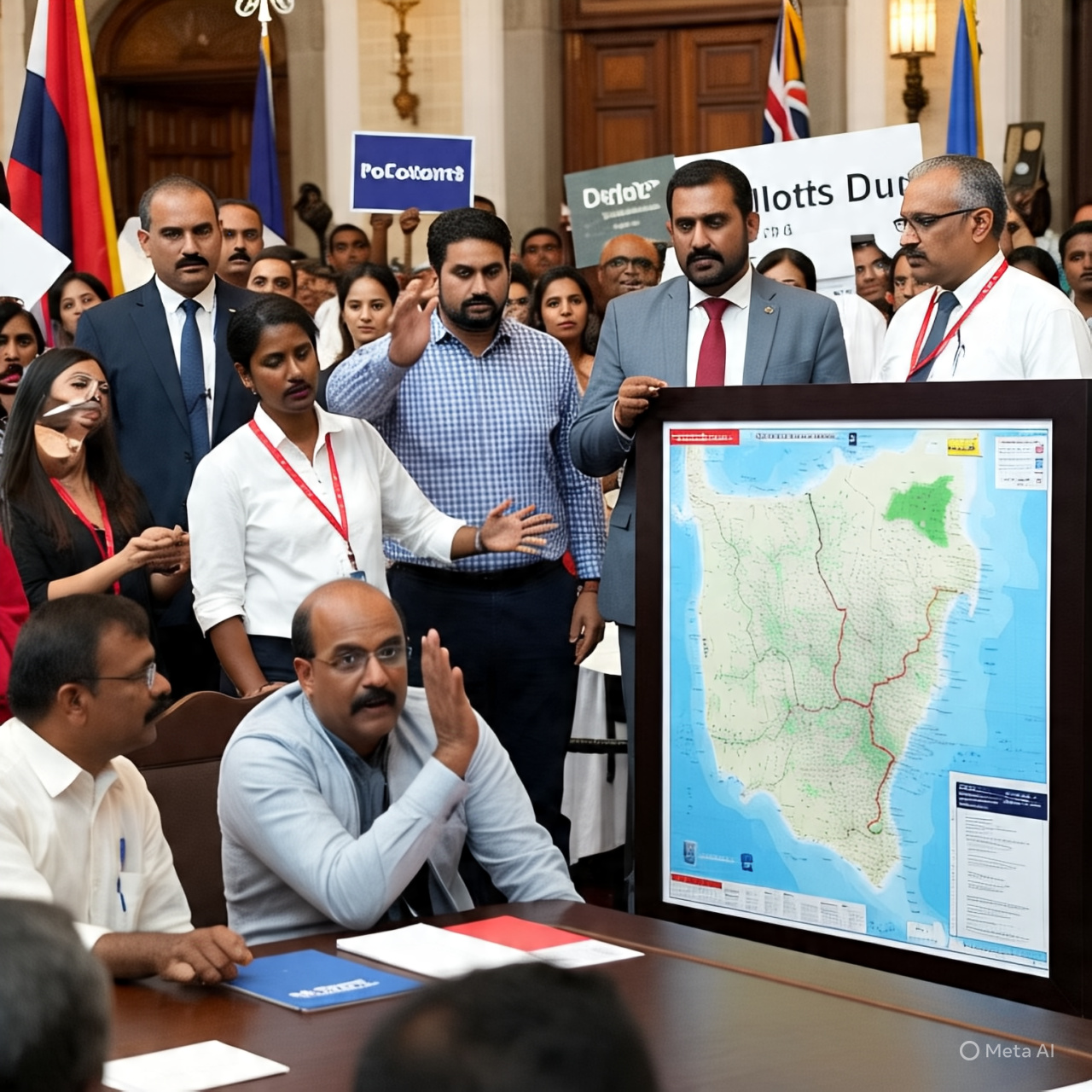UK Under Fire as Control Over Chagos Islands Shifted to Mauritius Despite Geographic Distance
FNF News | May 22, 2025
A fresh wave of geopolitical scrutiny is facing the United Kingdom after its decision to acknowledge Mauritius’s sovereignty over the Chagos Archipelago — a group of islands in the Indian Ocean that has long been at the center of a colonial-era dispute. The decision, however, has raised eyebrows globally due to the 2,200-kilometer separation between Mauritius and the Chagos Islands, prompting questions about the logic and legitimacy of this transfer.
The issue touches deep nerves in international law, decolonization, and strategic military interests, particularly due to the presence of the U.S. military base on Diego Garcia, the largest island in the Chagos chain.
Background: A Colonial Wound That Never Healed
The United Kingdom separated the Chagos Islands from Mauritius in 1965, three years before Mauritius gained independence. The islands were retained under British control and designated as the British Indian Ocean Territory (BIOT). The move was widely condemned as a violation of decolonization principles, particularly because it involved forcibly removing the Chagossian people from their homeland to make way for a U.S. airbase on Diego Garcia.
In 2019, the International Court of Justice (ICJ) issued a non-binding but highly influential opinion, ruling that the UK’s continued administration of the Chagos Islands was “unlawful” and that they should be returned to Mauritius “as rapidly as possible.” This was backed by a UN General Assembly resolution in the same year.
Why Mauritius — and Why Now?
Critics argue that Mauritius is geographically distant — over 2,200 km from the Chagos Islands — and lacks historic, administrative, or logistical ties to the archipelago. However, legal experts note that Mauritius’ sovereignty claim is rooted in the pre-independence status of the islands, which were part of the colony before their separation.
“The distance is irrelevant in the context of decolonization law,” said Professor Caroline Foster, a public international law expert at the University of Auckland. “Territorial integrity at the time of independence is the central principle.”
Mauritius has promised to maintain the U.S. base lease on Diego Garcia, ensuring no disruption to Western strategic military interests in the Indo-Pacific region.
Voices of the Displaced: What About the Chagossians?
While governments debate sovereignty, former Chagos Islanders remain stateless, displaced, and largely unheard.
“We want to go home—not just have one colonial power replaced by another,” said Olivier Bancoult, a leader of the Chagossian exile community in the UK.
Mauritius has pledged to facilitate Chagossian return, but few practical steps have been taken. Human rights groups say that any sovereignty deal must center the rights of the original inhabitants, many of whom still live in poverty in the UK, Mauritius, and the Seychelles.
UK and U.S. Silence Raises Eyebrows
Both the UK Foreign Office and the U.S. Department of Defense have been careful not to comment publicly on the specifics of the sovereignty transfer, focusing instead on ensuring the “continuity of defense operations.” Critics argue that the secrecy surrounding the agreement lacks democratic accountability.
“If this is about righting colonial wrongs, then where is the transparency? Where is the justice for the Chagossians?” said Amnesty International’s UK chapter in a statement.
Geopolitical Stakes High in the Indian Ocean
With the rise of China in the Indo-Pacific region, the U.S. base on Diego Garcia remains strategically vital. Analysts say the base’s existence is likely the only reason the sovereignty issue has gained urgency — to create a stable long-term framework for Western military presence.
However, the optics of transferring colonial-era territory thousands of kilometers away to another country, without the clear consent of its original people, is a decision likely to haunt international diplomacy for years to come.
Sources:
- International Court of Justice Advisory Opinion, 2019
- United Nations General Assembly Resolution A/RES/73/295
- BBC News: Chagos Islands Sovereignty Dispute
- Human Rights Watch – “That’s When the Nightmare Started” Report, 2023

